Diet for IBS
One thing is for sure: There cannot be one diet for IBS that is the same for everyone - different people react to foods in different ways - but there are some foods that are more likely than others to cause flare-ups.
Let's consider a few:
After you've read the article, see whether you can answer the following questions:
- What are the compounds in milk that often can cause problems?
- Are beans to be excluded from the IBS diet?
- Why are sugars and fatty foods often a problems for people with IBS?
- Should you include more fibre or eat a low-fibre diet?
- How can stress affect your symptoms?
Dairy Foods and IBS
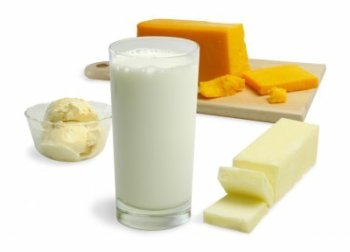
Although children can usually enjoy milk and cheese to their hearts' content without apparent problems, up to 70% of adults worldwide produce insufficient amounts of the enzyme lactase needed to digest the sugar lactose found in dairy foods.
In people who don't produce this enzyme or don't produce enough, this can cause sometimes severe symptoms of IBS.
Some people can be intolerant to casein, the protein in milk, and this too can cause flare ups of the symptoms.
To find out whether dairy foods are a problem in your case, you can try to cut them out of your diet for 2 to 3 weeks. If milk is a problem you should find that your symptoms disappear.
According to Dr. David E. Beck, MD, chairman of the department of colon and rectal surgery at the Ochsner Clinic in New Orleans, you don't necessarily have to give up milk and cheese entirely.
Over time, you'll get a good idea of how much of a dairy food you can enjoy without having problems. So for some people it's possible to include some dairy products in their diet for IBS.
Beans and IBS

It's no surprise that beans often don't agree with people who have IBS - they generally produce quite a lot of gas.
For this reasons many people
exclude them altogether from their diet for IBS, which is a pity considering the numerous health benefits of beans.
But you don't
have to rule them out entirely, says Dr. Beck. You may find that some
kinds of beans bother you more than others and some don't bother you at
all. So try different ones and you may find that you can safely include some of them in your IBS diet.
To help reduce gas, flavour your beans with fresh or ground ginger (a natural laxative), even cook them with it.
Or before eating beans, you can try taking digestive enzymes
that contain alpha galactosidase,
the enzyme that helps to break down the polysaccharides present in beans and other vegetables, which are the
cause of intestinal discomfort.
Sugar and Sweeteners
Another food that's hard to digest is the natural sugar fructose found in soft drinks and apple and pear juices, says Samuel Meyers, MD, clinical professor of medicine at Mount Sinai School of Medicine in New York City.
One study found that half of all IBS patients suffered intestinal distress after eating about an oz./28g. of fructose.
Sweeteners like sorbitol, which are found in diet candy and chewing gum, can also be a problem.
One study of 42 healthy adults detected sorbitol intolerance in a surprising 43% of whites and 55% of non-whites after they ate a mere ten grams of sorbitol - the amount in five sticks of sugarless gum, five sugar-free mints or a tablespoon of dietetic jam.
For many people with IBS, cutting back on these high-sorbitol foods may be all it takes to ease their discomfort. Read the labels carefully if you're not sure.
Fatty Foods and IBS
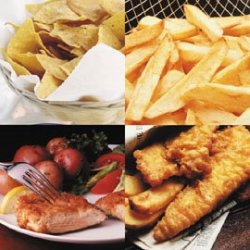
A common cause of IBS flare-ups is fat. This is because the bowel normally contracts following a high-fat meal. For people with IBS, these normal contractions can be extremely painful, Dr. Meyers explains.
Getting no more (and preferably less) than 30% of your total calories from fat will go a long way toward calming an irritable bowel, he says.
A sure way to eat less fat is to cook your own meals rather than eat out or buy ready meals, says Paul Millea, MD, assistant professor of family and community medicine at the Medical College of Wisconsin in Milwaukee.
Restaurants prepare food with their own benefit in mind, not yours. As a result, the food you eat at most restaurants is loaded with fat and low in nutrients.
Fibre in the Diet for IBS
Another problem with high-fat food is that they are low in fibre, and fibre is the key to avoiding IBS flare-ups for several reasons:
- Insoluble fibre soaks up water as it passes through your intestines, helping to bulk up, weigh down and soften your stools, so the intestine doesn't have to squeeze as much to move them along, Dr. Beck says.
- Soluble fibre forms a sticky gel that acts like protective coating inside your digestive tract, preventing irritants from causing problems such as cramping, gas or other symptoms.
- Both kinds of fibre are important because together they help sweep things along, from your stomach to your intestines to your stools and out.
- Getting the right type of dietary fibre also will help relieve both diarrhoea and constipation, which often occur in people with IBS.
The Daily Value (DV) for fibre is 25 grams. As a starting point, Dr. Millea tells his patients to add a bowl of bran cereal to their diet for IBS every day and build up from there. "Most people will be surprised at how it affects their gastrointestinal system," he says.
According to Gerald Friedman, MD, associate professor of gastroenterology at Mount Sinai School of Medicine in New York, dietary fibre, eaten over an extended period of time, can actually "correct" some of the abnormal motor patterns of the colon common in irritable bowel syndrome.
So it can help slow down or speed up contractions, helping in constipation or diarrhoea.
What to Do When Including Fibre in Your Diet for
IBS
Please Note:
If you have IBS and want to start eating more fibre, do so gradually.
Eating more fibre when your body isn't used to it can bring on even more digestive problems.
Also some people are
intolerant to gluten, present in wheat and other
cereals, and experience more intestinal problems when they increase their fibre
intake.
You need to give your body time to adjust. Start slowly by adding more fibre-rich foods to your diet a few at a time over the course of several weeks or months.
And be sure to drink lots of water, which fibre needs to work well.
Whether you need to add more fibre and which type of fibre is best for you, will depend on the type of IBS you suffer from.
If it's more constipation-predominant IBS, you might certainly benefit from adding more fibre of both types.
If you suffer with diarrhoea-predominant IBS you may need to restrict intake of insoluble fibre to start with.
Read more on the Elimination Diet to see how to proceed.
Wheat and IBS

Ironically, the top offending food in many studies on IBS is wheat - the very remedy most physician prescribe to relieve IBS symptoms.
In fact, many people report that they feel worse after eating the recommended bran.
The reason why it's difficult to make the link between wheat and IBS symptoms is that people eat it all the time and it's only when they change their habits that realise what's causing their symptoms.
So if you're intolerant to wheat adding bran to your diet for IBS, even in small amounts, would cause sudden problems and withdrawing it would bring about relief from the symptoms. This is where an elimination diet would prove to be beneficial.
Eat Smaller Meals
The more food you put into your body at any one time, even if they're all foods that you've found are suitable for your IBS diet, the harder the intestines have to work. And that can cause problems for people with IBS.
Having several small meals is usually easier for the body to handle than having two or three big meals, according to Douglas A. Drossman, MD, professor of medicine and psychiatry of North Carolina at Chapel Hill School of Medicine.
Stress and IBS
IBS is hardly ever seen in people who are retired because its symptoms are commonly brought on by stress, says Dr. Millea.
When we're under stress we typically reach for foods that exacerbate IBS, such as coffee, soft drinks, chocolate and fast food. That's like throwing gasoline onto the fire for most people with IBS, says Dr. Millea.
We can't really avoid stress altogether, but we can be aware of the choices we make when we're under stress.
- We can avoid stimulants such as caffeine and alcohol, add as much fibre to our diet for IBS as we can, avoid eating out and be sure to get enough sleep and exercise.
If giving up coffee sounds impossible, you could try drinking less, perhaps limiting yourselves to a cup or two each day, keeping in mind that both regular and decaf coffee make the bowel more sensitive.
Steps to Work out Your Diet for IBS
Here in a nutshell the things you could do to try to take control of your IBS symptoms, as well as what to do to identify your problem foods and what to include in your diet for IBS:
- If you haven't been officially diagnosed with IBS, see a doctor to rule out other possible causes of
your discomfort. Many more serious problems have been overlooked because of self-diagnosis.
- For severe diarrhoea-predominant IBS, start the No Fibre Elimination Diet.
- For severe constipation-predominant IBS start the Regular Elimination Diet with Added Fibre.
- For less debilitating IBS, begin keeping an IBS Journal or Diary to keep track of your symptoms, your diet and your stress levels. Learn to identify which factors trigger your IBS attacks.
- Eat all your meals sitting down. Chew your food thoroughly. Make meals a time of relaxation, not a race.
- Exercise daily.
Now that you've read the article, how would you answer these questions?
- What are the compounds in milk that often can cause problems?
- Are beans to be excluded from the IBS diet?
- Why are sugars and fatty foods often a problems for people with IBS?
- Should you include more fibre or eat a low-fibre diet?
- How can stress affect your symptoms?
- What is your next step?
Recommended reading:
The IBS Miracle
How to Free Your Life from Irritable Bowel Syndrome
Treat IBS naturally, safely and permanently by giving your body what it needs. READ MORE
Products That Help Relieve the Pain of IBS
|
|
|
Bowel Essence
|
Peppermint Complex combines plant oils to help maintain the health
and tranquillity of the digestive system including peppermint, ginger,
fennel, chamomile and cardamom. |
IBS Action Pages
IBS Trigger Foods - Foods to Avoid If You Suffer with Irritable Bowel Syndrome
Elimination Diet for IBS and Other Food Sensitivities
IBS with Diarrhea - The Elimination Diet
IBS With Constipation - The Elimination Diet
IBS Foods - Healing Foods to Regulate Your Colon
Other IBS Related Pages
Causes of Irritable Bowel Syndrome
External source of information on IBS that I found very useful:
International Foundation for Functional Gastrointestinal Disorders
- Home --->
- Causes of IBS --->
- Diet for IBS
Search for information on this site:
Receive Discover the Power of Healing Foods! Free
Newsletter
IBS RELATED
ARTICLES:
Symptoms of Irritable Bowel Syndrome
IBS Trigger Foods - Foods to Avoid If You Suffer with Irritable Bowel Syndrome
Elimination Diet for IBS and Other Food Sensitivities
IBS with Diarrhea - The Elimination Diet
IBS With Constipation - The Elimination Diet
IBS Foods - Healing Foods to Regulate Your Colon
Foods for IBS with Diarrhea - healing Foods To
Soothe your Colon
Products that can relieve the pain of IBS:
Fibre Supplement with Digestive Enzymes
Bowel Essence
A combination of herbs designed to calm the symptoms of IBS.
Peppermint Complex combines plant oils to help maintain the health and
tranquillity of the digestive system including peppermint, ginger,
fennel, chamomile and cardamom.
Most Popular
Pages:
The Best "Fish Oil" Supplement is Not Made from Fish
Bananas for High Blood
Pressure

Elimination Diet for IBS and Other Food
Sensitivities
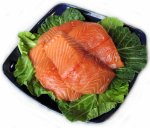

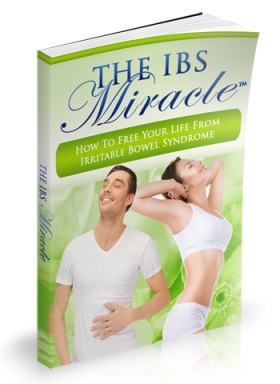
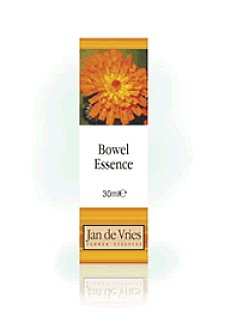
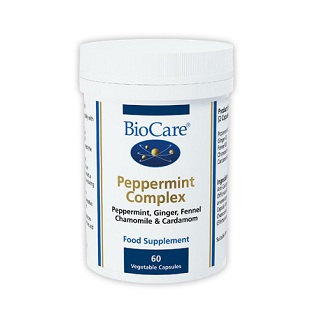
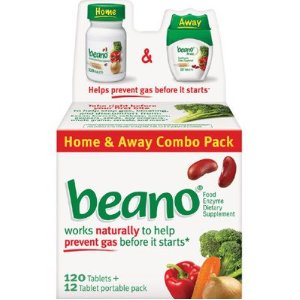
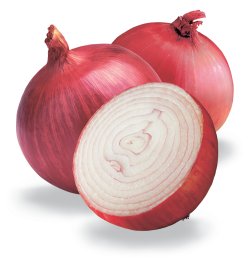





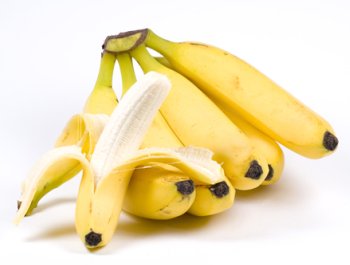
New! Comments
Have your say about what you just read! Leave me a comment in the box below.